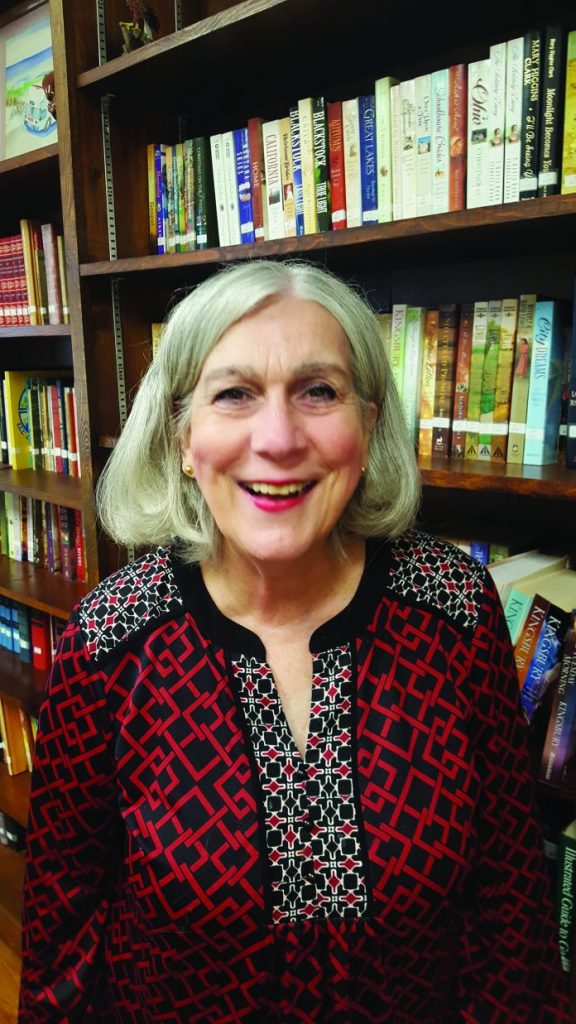By Beth Pinyerd
I absolutely love to sit down with groups of my senior friends and learn about “The Good Old Days.” We discuss current events, history, seasons, family, poems, etc. during our sit and chats. We laugh at many seasonal jokes as well.
As I facilitate the conversation, I glance around at some of my longtime senior friends who have a distant stare in their eyes as well as a look of confusion. These are my precious sweet friends who have different forms of dementia, including Alzheimer’s disease.
How can I enrich the quality of life for my Senior friends who have dementia? As we enter February, known as a month of love and outreach, there are many opportunities for us to include our senior friends in our plans.
I quickly reflect back to the very sweet relation I had with my grandmother “Nanny,” the late Lillie Mae Jones, who was so active in her outreach of love to her family, church and community.
Nanny took time to teach me how to play the piano and sing in her home. As a child, she told me singing and music would always lift my spirits and make me happy! Even when I have felt blue, music has been my “happy therapy.”
As a young adult, I realized my grandmother seemed to be at a distance and couldn’t remember previous conversations as she grew older.
But, the one connection I had with her was through the music she had taught me. Nanny remembered every word in the hymns we sang together. She may not have remembered my name, but she still remembered Jesus’ name.
Listen sometime to Melody Goodman’s song, sung by The Booth Brothers’ “She still Remembers Jesus’ Name.” As children or grandchildren of parents or grandparents who have dementia, listening to this song will encourage your heart. Being around young children awaken the senses of happiness and joy with my senior friends. Both generations love music!
One thing that I have closely observed with my senior friends who have dementia is that even if their eyes are closed that their minds and motions come alive when we are singing. The activity professionals who I volunteer with put on different kinds of music to engage and entertain the residents, to calm and uplift the moods of residents, as well as manage the stress that an elderly person may have with dementia.
Alzheimer’s and dementia destroy a person’s ability to remember experiences in a person’s life, family, and friends but the memory of music seems to survive the destruction of this disease which we are constantly searching for the reasons why these diseases occur and how to cure them.
For seniors who have different forms of dementia, for caregivers there are so many different kinds of music you can play on CD’s, Karaoke, piano, or just singing acapella.
If you are a caregiver for family members who have dementia, try to remember what their favorite songs were. You may have to ask older family members if you don’t know.
When I am planning programs as an activity volunteer on music favorites from the past, I go to my computer and type in favorite songs from the 1930s, 1940s, 1950s and beyond. The websites that come up when you do this are full of favorite “hits” from the different eras. Some websites also provide audio so you can listen to a brief sample of the tune. Lyrics to different songs are provided on the different websites too.
The library is a wonderful resource of checking out CDs, DVDs and recordings of songs from the past. The librarians in our local libraries have been so very helpful in supplying the musical resources I need for different activity programs. Local libraries will help caregivers find what they need.
In activity programs where I have reached out to seniors, when we have birthday parties or socials we put on happy music from the past that our seniors are familiar with. These are fun play songs that bring up significant reflections of the past to your love ones who have dementia.
Happy memory songs also encourage clapping, toe tapping and other kinds of movement for those who suffer from Dementia. This promotes physical exercise which is needed for good health.
Traditional folk songs like “Daisy Bell (A Bicycle Built For Two),” “I’ve Been Working on the Railroad,” “She’ll Be Comin Round the Mountain” and others promote group unity. This really helps those who suffer from dementia to connect with others in singing and to have a sense of security and comfort.
When a day is winding down, choosing calm, soothing music calms dementia sufferers. In an evening program I have done, we sang every verse of “Red Sails In the Sunset” by Jimmy Kennedy and Hugh Williams. When it is raining, we sing “Pennies from Heaven” by Arthur Johnston and Johnny Burke and other calm songs from the past. Calm songs seem to reduce a lot of anxiety that dementia sufferers face in the evening.
One truth that I hear caregivers of dementia sufferers say over and over is that their “love one is still there” and that music is one way that they can connect. Alzheimer’s and dementia may not disappear but the quality of life can be enhanced by music.
I know that this is just “the tip of the iceberg” of help that family and caregivers who are afflicted by Alzheimer’s and dementia can receive for their loved ones. Something so simple as music, singing, humming, whistling can open up memories and strengthen relationships.
